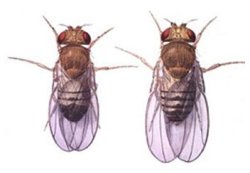RESEARCH SUMMARY:

Sex chromosomes and sex determination: Substantial phenotypic variation exists within all species, and the most dramatic differences are often between the sexes. Despite their substantial phenotypic differences, males and females share nearly identical genomes. We use functional genomics to study how males and females differentially deploy these shared genomes to produce sexually dimorphic phenotypes. We additionally apply comparative and population genomics approaches to study how these differences evolve and what role the sex chromosomes play in sexual dimorphism. Our research takes advantage of a wide range of organismal systems, from the popular model Drosophila melanogaster to non-model organisms with fascinating biologies.
Host-microbe interactions: Microbial organisms (bacteria, yeast, etc.) are ubiquitously found on animal hosts. These microbes can be essential for host development and nutrition, but they can also be pathogenic to the host. Moreover, microbes can use animals to vector between different hosts, facilitating the spread of infectious disease. We study the bacteria that live within filth flies (house flies and blow flies) and the effects these microbes have on their hosts. We are especially interested in how flies have evolved in their responses to different microbes.
ONGOING PROJECTS:
Evolution of sex determination
Sex chromosome evolution
Fly-microbe interactions
PREVIOUS WORK:
Origins of Drosophila pseudoobscura chromosomal inversions
Drosophila pseudoobscura recombination and meiotic drive
Origin and evolution of duplicated genes in Drosophila pseudoobscura